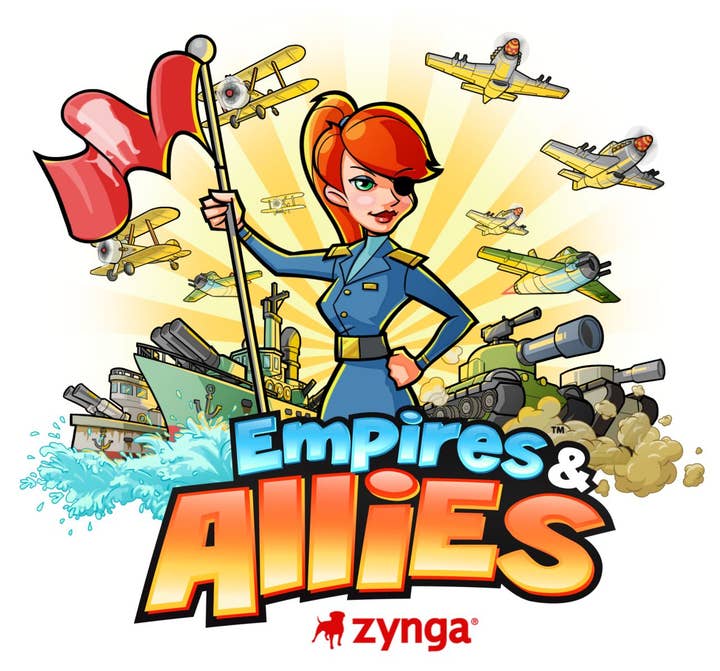Bob Bates: Being at Zynga "Like drinking from a firehose"
The veteran game designer offers insights on his role in the design process
Zynga has become a major game company very quickly, growing to thousands of employees in only a few years. Most of this growth has come from outside of the traditional market for games, which was predominantly young, male, and focused on various kinds of action, roleplaying, and strategy. Zynga's been criticized for being metrics-driven, for copying game designs, and for not creating the types of games that the classic game industry was built upon. Those opinions don't fit well with the reality that for several years Zynga has been bringing in experienced game designers to create and refine Zynga game designs.
One of those experienced designers is Bob Bates, who started as a designer of interactive fiction for Infocom back in the 1980s, and later co-founded Legend Entertainment to make games such as Timequest and Eric the Unready. He's written, designed, produced or overseen more than 39 games that have won more than 60 industry awards, and worked on #1 titles for the PC (Unreal 2) and for consoles (Spider-Man 3). He's been past chair of the IGDA twice, has won a Lifetime Achievement Award from the IGDA, and was IGDA Person of the Year in 2010. Bob was hired by Zynga in 2010 as Chief Creative Officer for external studios.
"It's a somewhat misleading title," Bates admits. "External studios, to Zynga, means studios that Zynga owns that are not in San Francisco. So it's more like 'remote studios.'" Essentially, it means Bates functions as a roving game designer, working with various Zynga studios in different places on their design issues. "It's really cool because I'm there at all stages," says Bates. "When somebody has an idea for a game and wants to pitch it as something that Zynga should do, I'm one of the people they run it by. There's a group of us that look at new ideas. Then as projects become greenlit and start to go through the process, I'm one of the people who says if you're ready to move from this step to that step."
"The most difficult part is just simply trying to wrap my head around everything that goes into a social game."
Bob Bates
The most interesting part for Bates is being in the design process at the end, when he can do "real work" as he puts it. "On Empires & Allies, I went to Los Angeles quite a bit for that game," says Bates. "All the words that you read in the early part of that game - at least when it launched; they change all the time - when it launched, all the words that you read in that game were words that I wrote. Which is to me, the coolest thing ever, because that's actual work. And on Mafia Wars II, I actually got to write just a little bit of code. So it's the best job ever."

In his role, Bates functions as a script doctor and as a design doctor. "I try to help them clear out the obstacles that are in their way," Bates notes. "Which is what I did as a consultant; after I left Legend I was a consultant for 7 years, and this feels a lot like that." Bates is involved with looking at game designs through the development process. "When they go from concept to design to pre-production to production, at each step there's a formal process, and I'm part of that process," Bates says. "It gives me a tremendous variety of stuff, and that's one of the things I loved about consulting and it's still true here. I'm never doing the same thing; games are all in different stages, they're all in different genres, and it's not dull."
It hasn't been easy for Bates to make the shift into a completely different style of game play. "The most difficult part is just simply trying to wrap my head around everything that goes into a social game," he notes. "We're a pretty metrics-driven company, and finding ways to use those metrics to your advantage in a game design is an interesting general challenge." Could metrics be driving design to the detriment of game play? Or are designers simply using metrics as another tool, as Brian Reynolds observed?
Bates believes that metrics are a useful tool to improve designs, and he offers the following example. "At the beginning of Empires & Allies, there was a short - about 30, 35 second - little cut scene that showed the island being invaded. In the world of casual games, to have the player not be able to play the game for 30-35 seconds, that's a long time. In the world of casual games, that's like 'What are you thinking?' I thought it was probably a good idea to do this," he says.
"So being Zynga, we tested it. They showed that movie to a bunch of players, and didn't show it to a bunch of other players, and then tracked those players over time. Did we lose them right away? Were the people who stayed more engaged or less engaged? It turned out they were in fact more engaged. So now when you start Empires & Allies, everybody sees that movie. That says to me you can spend some time at the beginning of a game engaging, take a few of your precious clicks and moments to work on engaging the players and engaging their emotions in particular. That's an example of where metrics inform the design."
"We're still in the infancy of understanding what's possible and what it really means for a game to be social."
Bob Bates
Asked about the work environment at Zynga and how he operates in it, Bates has an interesting response. "The great thing about Zynga that people don't get," he notes, "is our values are up on the wall, and the top one, which I take really, really seriously, is 'Be the CEO.' That pervades the entire Zynga culture. For me in particular, all the things that I have done at Zynga have been because I said to my boss 'I think I can help out there,' and he said 'Okay.' 'I think that game could use a lot more of me... what's the best use of Bob?' In every case, he said 'okay', and in some cases he said 'I was hoping you would ask.'"
Bates emphasizes that he's still learning, partly because the whole field of social gaming is so new. "It's an amazing education," he says. "It has been like drinking from a firehose. This social gaming business is so radically different than anything we've ever known; it's been really interesting. And it really is just the beginning."
Bates feels that the social element has a tremendous amount of evolution ahead of it. "The thing that makes this different from everything we've done before really is the social element. We're still in the infancy of understanding what's possible and what it really means for a game to be social. Right now we're viral, but true social, where you feel like you're actually playing with your friends, not 'I'm playing here, he's playing there' is still ahead. The sense of actually playing together, that's a real challenge, and I'd like to be in a position where I can attack that challenge. I don't feel like I know enough yet to pull that off; I'm still learning the space. Finding ways to do those kinds of things would be very, very cool."

